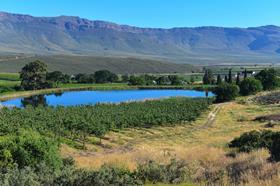
As the time for written submissions to South Africa’s Parliament on the land issue expires, the question is whether the South African fruit industry’s submissions will carry enough weight in what has become a rather emotional debate.
The question is whether amendments should be made to the country’s constitution which has been in existence since the mid 1990’s. This is argued by some as the best way to redress the land issue once and for all by expropriating land without compensation.
The South African industries have confirmed that they have submitted their arguments. The parliamentarians tasked with gathering the views on the matter will now be travelling across the country to hear oral submissions. Final recommendations are expected to be presented to Parliament in September.
Even then, there may be considerable legal battles before the issue is resolved – one way or the other. The outcome will also Simply put, the question is whether fruit growers will be encouraged to do what they do best - play their entrepreneurial role, increase jobs and generally contribute to economic development in rural communities where this is most needed.
Facing them is what seems to be a never ending ‘colonial’ tag – which condemns them, and all international business and people from foreign origin, as land thieves who benefitted from the colonial past. The question is, can the fruit growing community win the hearts and minds of those who currently seem to discard the role the commercial sector is, and could be, playing in South Africa.
The issue is muddled by the fact that South Africa is heading for an election next year, with the ruling party in disarray and the economy struggling. There is a real chance that the ANC could be unseated and the populist slogans on land have become the rallying call to unite the tribe. Senior politicians have tried to allay fears about what form land expropriation – with or without compensation – will finally take.
The President, and in fact the ANC’s own conference decisions, clearly state that this cannot be done at the expense of food security and the economy. If this is the view that prevails, then there is enough in the future that will see a prominent role, without too much interference, for the fruit sector. It will also be more comforting for the fruit industry to take note of the recent utterances of the ANC’s national committee that land expropriation without compensation is but one mechanism which should be used to advance land transformation.
It is also clear that the government’s dismal record in land transformation and distribution has become a real problem for the government 24 years after democracy. For what has always been regarded as a key government policy, only around 1 per cent of the national budget has been allocated to this since the dawn of democracy.
In the fruit sectors there are ample examples of growers being willing to share with their workers. Successful projects are however almost entirely due to the endeavours of growers alone, with little if any support from national and other funding.
Whatever happens, it is clear that until next year’s election South African growers can prepare themselves for a difficult period of instability. This has already given rise to unrest in some regions and issues such as wages and labour may well be prominent on the agenda as the hunt for votes continue.
Why is this important for the international community? South Africa is one of the most important sources of out-of-season fresh produce, and instability in the sector will have consequences far outside the country’s borders.



